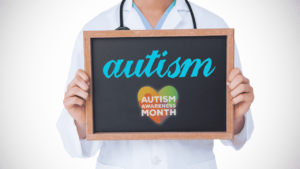Many people dread growing older based on assumptions they have about aging. As we age and find ourselves spending time with older adults, it is important to understand what is typical and not typical with aging, as well as the positive aspects of aging.
In fact, research shows that you can help preserve your health and cultivate happiness by engaging in healthy habits and lifestyle choices. Read on to learn 10 of the most common myths surrounding senior mental health.
Myth 1: Depression and Anxiety are Normal in Older Adults
Depression is NOT normal with aging and can be effectively treated. Unfortunately, depression and anxiety in older adults often goes undetected and untreated largely due to the false belief that with age its normal to have a mental health problem.
In fact, studies show that older adults are less likely to experience depression and anxiety than younger adults.
So, when should you be concerned? Older adults with depression may have less obvious symptoms or be less likely to discuss their feelings. Depression is a common and potentially serious mood disorder that when left untreated can make medical problems worse, impact functioning, create family strain, and increase the risk for suicide.
The good news is: depression is highly treatable in older adults.
Learn more about depression and anxiety in older adults here.
Myth 2: As we age, we don’t need as much sleep
Not true! Experts agree that sleeping on average 7-8 hours each day is related to better brain and physical health in older adults.
How Does Sleep Change with Age? As we age, it’s common for sleep to become less deep, for example, and we may experience more awakenings. Sleep also becomes more vulnerable to disturbances, like pain, health issues, stress, mental health conditions, changes in our environment, etc.
Sleep, however, is essential to overall mental and physical health and well-being. It’s vital for brain health and cognitive function. In fact, people with chronic inadequate sleep are at higher risk for dementia, depression, heart disease, obesity, diabetes, fall-related injuries, and cancer.
Learn more about sleep and aging here and get tips for getting a good night’s sleep.
Myth 3: Older adults can’t learn new things.
Learning and growing are possible at every stage of life. Older adults are capable of learning new skills, being creative, and improving performance.
Take, for example, older actors like 83 year old, Lily Tomlin and 85 year old, Morgan Freeman, who learn new lines for their roles. Or, athletes like Ida Keeling, who started running after 65 years old and was the first woman to run 100 meters at 100 years old. Then there’s Aboriginal artist Loongkoonan, who began painting in her 90s and at the age of 105 received critical acclaim and was exhibited in Washington, DC.
Studies show improvements in memory when older adults engage in learning new tasks or hobbies, like quilting or digital photography.
Older adults never stop learning and growing. Learn more about how to improve brain health here.
Myth 4: It is inevitable that older people will get dementia.
Dementia is not a normal part of aging. In fact, in 2022, only 1 in 9 (10.7%) of people 65 and older have Alzheimer’s Disease, the most common form of dementia. The risk for developing dementia does increase with age with 33.2% of people age 85 and older having Alzheimer’s dementia. Dementia, however, is not a foregone conclusion, and the risk for developing dementia is actually decreasing.
It is true that changes in the brain do occur with age and that some age-related memory loss is expected. However, this doesn’t prevent older adults from living a productive and independent life.
For example, it’s normal to forget a person’s name, but recall it later in the day. You might misplace your glasses, then realize you’re wearing them. Or maybe you need to make lists more often than in the past to remember appointments or tasks.These changes in memory are generally minimal and manageable and don’t disrupt your ability to work, live independently or maintain a social life.
Not all changes are bad. Research out of Trinity College Dublin found that older adults tended to find it easier to focus, were less anxious, and were in better control of their brains than their younger counterparts.
Learn more about dementia here.
Myth 5: If my parent has Alzheimer’s disease, I will get it too.
While certain genes, like APOE-ε4 gene, do increase your risk for Alzheimer’s Disease, developing dementia is NOT a foregone conclusion. In fact, research out of Yale shows that people who had the APOE-ε4 gene who had a positive views about aging were 49.8% less likely to develop dementia than those with negative views on aging. This reduction in risk effectively put these folks in the same risk category as people who don’t have the APOE-ε4 gene at all!
There are many other lifestyle habits you can incorporate to reduce your risk of Alzheimer’s Disease as well, including physical exercise, nutrition, cultivating a sense of meaning and purpose in your life, and so much more.
If you’re concerned about changes in your brain, the first step is to contact your doctor to identify what may be causing these changes. Sometimes brain changes are a symptom of other medical problems that can be helped.
Learn more about dementia and what you can do to reduce your risk for dementia here.
Myth 6: People with dementia don’t benefit from mental health care.
Before I began to specialize with older adults, I held this false belief too. In fact, I would make statements that I wanted to work with older adults, but not people with dementia. Boy, was I ableist. Ableism is bias and stereotyping about a person’s ability. Yes, dementia is an illness that impairs thinking and functioning, but this doesn’t mean people are beyond help and care. In fact, people with dementia can benefit from mental health care for depression, anxiety, substance use and more.
Learn more about screening for depression in people living with dementia here.
Myth 7: At a certain age, seniors must stop driving
There are more than 40 million people 65 and older who have an active driver’s license. You may be surprised to hear that older drivers are, by and large, very safe drivers. In fact, they’re more likely to wear their seat belt and drive the speed limit and are less likely to drink and drive than any other age group.
According to the National Highway Traffic Safety Administration (NHTSA), older adults are less likely to be the drivers involved in fatal car accidents than people younger than them. As might expect, people ages 16-24 were the most likely to be driving.
Driving is based on ability, not age, which is why we have to take a test to demonstrate our ability to drive.
As we age our bodies naturally experience physical changes like to our vision, hearing, mobility, reaction time, mild memory changes, and so on. Our bodies are also more vulnerable to medical conditions, which might impair our ability to drive or require medications that can affect driving.
If you’re concerned about driving, it’s important to talk with your doctor for assistance in navigating changes.
Finally, gaining tools and adapting your car can help you stay safe on the road for as long as possible.
Myth 8: Sex and intimacy are no longer valued after a certain age
People all throughout their lives enjoy sex and intimacy. In fact, a recent survey of more than 1,000 adults between 65-80 years old, found that 50.9% of men and 30.8% of women reported being sexually active. Yet, in this same survey, when it came to discussing sexual health with health care providers, only 17.3% of adults aged 65–80 reported speaking to their health care provider about sexual health in the past two years and of those, the vast majority of older adults (60.5%) initiated the conversation.
Researchers have found that sex among older adults is often viewed as stereotypically “shameful, disgusting, laughable, and nonexistent”, which can lead to internalized stigma and increased sexual problems for older adults.
It’s time we shift the narrative about aging and sexuality toward a more accurate and holistic view. There are many benefits to sexual relationships in older adulthood, including physical, cognitive, relational, psychological, and spiritual. The sooner we can remove negative beliefs about aging from conversations around intimacy and sexual health, the better.
Learn more about sexual health and aging here
Myth 9: Seniors are set in their ways, therefore they don’t respond well to mental health care
Wrong. This is a common misconception rooted in untrue stereotypes about older adults being rigid and impervious to change. This couldn’t be further from the truth. In fact, treatment for mental health concerns is just as effective in older adults as in younger adults.
A recent SAMHSA report on alcohol treatment found that older adults who participated in substance use treatment programs, had nearly the same or better outcomes than younger adults, and were more likely to complete treatment than younger adults.
One major difference between younger and older adults is that older adults are less likely to be referred for mental health care because of this and other myths, not to mention stigma that accompanies mental health care.
Here’s where you come in. When you hear this myth being repeated in conversation, lean in, share this information about the efficacy of mental health care, and then connect older adults to mental health providers here.
Myth 10: Addiction is not a mental health problem that affects older adults
Over the past 20 years, alcohol use has steadily increased among adults 60 and older, especially among women. Other research shows that approximately 20% of adults aged 60-64 and around 11% 65 and older report current binge drinking (consuming 5 or more drinks on an occasion for men or 4 or more drinks on an occasion for women).
As you can see, number of older adults with alcohol problems and other substance use problems is on the rise, yet substance use disorders among older adults remain largely unrecognized and untreated. Here’s why:
Health care providers may overlook substance use problems due to short visit times and lack of knowledge about substance use disorders among older adults. Not to mention that substance use problems can be hard to identify and diagnose in older adults because symptoms may mimic other disorders often linked with older people (like diabetes, cognitive and dementia disorders, and depression).
Family members may think that “it’s no use referring my loved one to substance use treatment… they’ll never change”.
Here’s the good news: Older adults CAN CHANGE and DO INDEED BENEFIT from treatment for substance use disorders. So lean in, share your concerns, and offer to connect the older adult to care.
Learn more about aging and alcohol use and what you can do to help here.
Where do myths about mental health and aging come from?
Ageism, stereotypical beliefs and attitudes we hold about older adults, reinforces many of the myths we have about mental health and aging. Stigma about mental health concerns and treatment for mental health concerns also plays a role as does lack of information about what is typical with aging and what is not typical with aging.
What next…
When you see friends, family, and colleagues sharing inaccurate information about aging, take the courageous step to challenge these ideas and debunk these myths.
By debunking myths about mental health and aging, we can ensure that older adults get the mental health care they need and enjoy their life. Each and every one of our lives will be better for it.
Are you a professional looking to enhance your work with older adults? Check out our Online Continuing Education courses. Older adult or family member looking for mental health providers? Visit our directory of mental health professionals and find a provider today.




